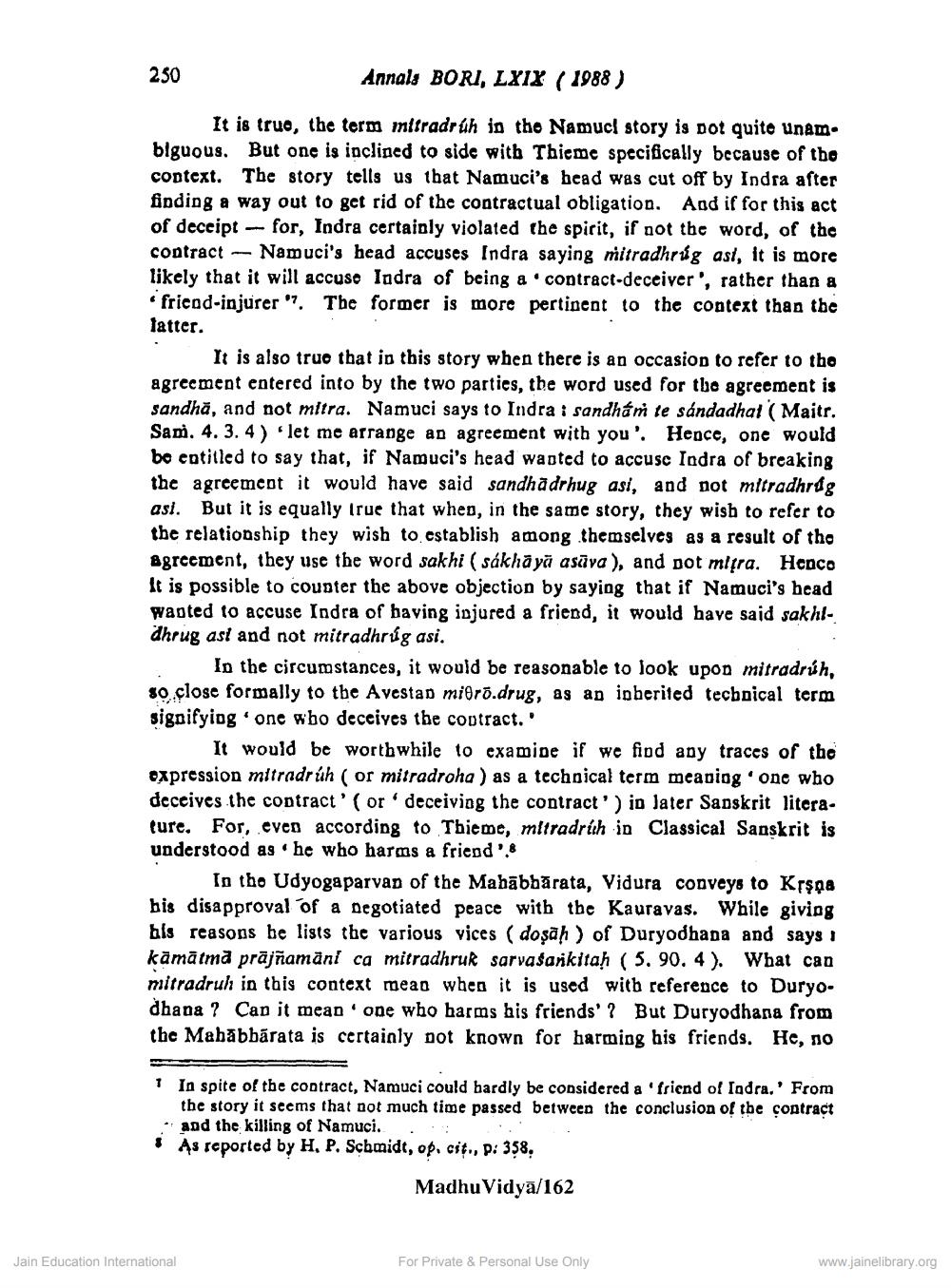________________
250
Annals BORI, LXIX (1988)
It is truo, the term mitradrúh in the Namucl story is not quite unam. biguous. But one is inclined to side with Thieme specifically because of tho context. The story tells us that Namuci's head was cut off by Indra after finding a way out to get rid of the contractual obligation. And if for this act of deceipt - for, Indra certainly violated the spirit, if not the word, of the contract - Namuci's head accuses Indra saying mitradhrug ast, it is more likely that it will accuse Indra of being a contract-deceiver', rather than a
fricod-injurer 7. The former is more pertinent to the context than the fatter.
It is also true that in this story when there is an occasion to refer to tho agreement entered into by the two parties, the word used for the agreement is sandhă, and not mitra. Namuci says to Indra i sandhán te sándadhal (Maitr. Sam. 4.3.4) let me arrange an agreement with you'. Hence, one would be entitled to say that, if Namuci's head wanted to accuse Indra of breaking the agreement it would have said sandhādrhug asi, and not mitradhrig asi. But it is equally true that when, in the same story, they wish to refer to the relationship they wish to establish among themselves as a result of the agreement, they use the word sakhi (sákhāyā asāva ), and pot mifra. Henco It is possible to counter the above objection by saying that if Namuci's head wanted to accuse Indra of baving injured a friend, it would have said sakhldhrug asi and not mitradhrúg asi.
In the circumstances, it would be reasonable to look upon mitradrúh, 80 close formally to the Avestap mibro.drug, as an inherited technical term signifying one who deceives the contract.
It would be worthwhile to examine if we find any traces of the expression mitradrúh ( or mitradroha ) as a technical term meaning'one who deceives the contract' (or deceiving the contract') in later Sanskrit literature. For, even according to Thieme, mltradrúh in Classical Sanskrit is understood as he who harms a friend'.8
In tho Udyogaparvad of the Mahābhārata, Vidura conveys to Krsna bis disapproval of a Degotiated peace with the Kauravas. While giving his reasons be lists the various vices ( dosah ) of Duryodhana and says: kāmātma prajñamāni ca mitradhruk sarvasarikitah (5. 90. 4). What can mitradruh in this context mean when it is used with reference to Duryodhana? Can it mean one who harms his friends'? But Duryodhana from the Mabābbārata is certainly not known for harming his friends. He, no
1 In spite of the contract, Namuci could hardly be considered a friend of ladra.' From
the story it seems that not much time passed between the conclusion of the contract
and the killing of Namuci. . As reported by H, P. Schmidt, op. cit., D: 358,
Madhu Vidyā/162
Jain Education International
For Private & Personal Use Only
www.jainelibrary.org




